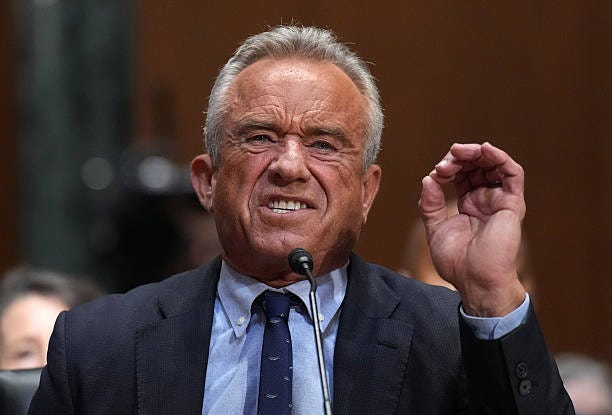The Epistemic Civil War: When Ideology Colonizes Biology
From Lysenko’s Russia to the FDA’s failures, we trace the roots of our current crisis. RFK Jr.’s rise isn’t an anomaly; it is the inevitable symptom of a broken contract between science and the citizen.
The Starving Fields
In the bitter winter of 1932, the Soviet Union faced a catastrophe that was not born of nature, but of a refusal to believe in it. Trofim Lysenko, a man of peasant origins and fierce ideological conviction, declared that genetics was a bourgeois invention. He argued that biology could be bent to the will of the revolution, that seeds could be trained to survive the frost simply by exposure, rejecting the Mendelian laws of inheritance. The scientific establishment, terrified and purged, nodded in agreement. The result was not a triumph of revolutionary will, but millions dead from famine. It was a stark lesson: biology does not negotiate with ideology, no matter who sits in the high chair of authority.
The Tower of Silence
Fast forward to the mid-20th century West. A different kind of failure was brewing, not from ideology, but from hubris. The institutional guardians of health, cloaked in the perceived infallibility of white coats, approved Thalidomide. They assured the public of its safety, dismissing early warnings as negligible noise. When the tragic consequences unfolded—thousands of children born with severe deformities—the contract of trust was fissured. It wasn’t just a medical error; it was a betrayal of guardianship. The institutions that claimed a monopoly on truth had proven that they could be blinded by profit, inertia, or simple arrogance. The seeds of modern skepticism were sown not by conspiracy theorists, but by the silence of the experts.
The Algorithmic Mirror
Now, step into a modern living room. A parent sits bathed in the blue light of a smartphone, scrolling through a feed curated by an invisible algorithm. There is no Lysenko here, and no singular Thalidomide scandal. Instead, there is a fragmentation of reality. Every fear is validated; every suspicion is met with a community of believers. The universal standard of evidence has been replaced by the resonance of emotion. In this digital silo, ‘truth’ is not what can be proven, but what feels right. The authority of the institution has been usurped by the intimacy of the influencer.
The Convergence of Doubt
These three threads—the ideological manipulation of science, the historical betrayal by institutions, and the digital fragmentation of truth—have knotted together in the figure of Robert F. Kennedy Jr. His ascendancy to a position of supreme influence over public health is not an accident of politics; it is the inevitable result of this historical momentum. We are not merely debating vaccine schedules; we are witnessing the collapse of the epistemological framework that holds society together. When the CDC is directed to alter its language not based on new data, but on a pre-existing skepticism, we risk returning to a Lysenkoist world where the map is redrawn to please the cartographer, regardless of the terrain.
The result of a consistent and total substitution of lies for factual truth is not that the lie will now be accepted as truth and the truth be defamed as a lie, but that the sense by which we take our bearings in the real world is being destroyed.
– Hannah Arendt
I feel a profound unease looking at this transition. It is easy to dismiss RFK Jr. as a fringe figure, but to do so is to ignore the deep, legitimate wounds that allowed him to rise. He speaks to a public that feels abandoned by a system that often prioritized corporate comfort over public transparency. However, the answer to institutional failure is not the dismantling of the scientific method. It is the restoration of its integrity.
A New Covenant for Reality
We find ourselves at a crossroads. On one path lies the total erosion of objective standards, where public health becomes a matter of personal preference and political identity—a path that history suggests leads to ruin. On the other path lies the difficult work of rebuilding the ‘Citadel of Trust.’ This cannot be done by shouting ‘trust the science’ while ignoring the valid grievances of the skeptical. It requires a radical transparency that admits past failures while fiercely defending the methodology that keeps us alive.
To be effective, truth must penetrate like an arrow—and that is likely to hurt.
– Wei Jingsheng
The danger is not just in one man or one policy; it is in the precedent that reality is negotiable. If we lose the ability to agree on the baseline facts of biology, we lose the ability to govern, to protect, and ultimately, to survive. We must demand better than blind faith in institutions or blind faith in iconoclasts. We must demand the heavy burden of proof.



